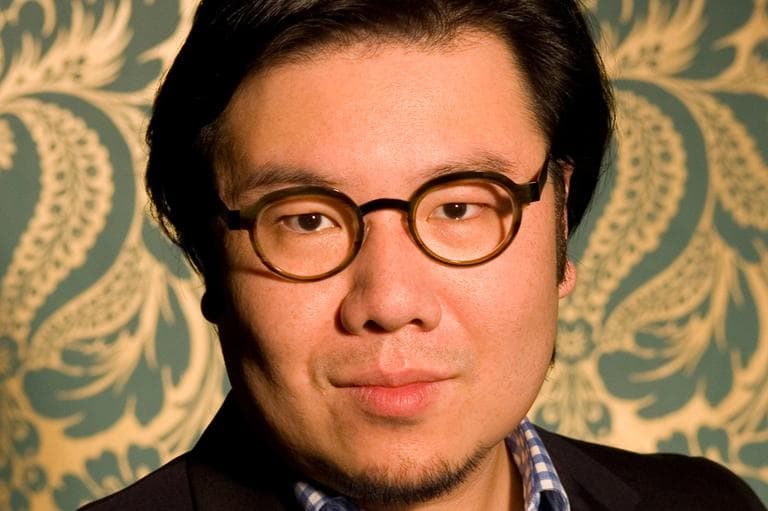Advertisement
Kevin Kwan's 'Crazy Rich Asians'—A Comedy Of Luxury

Kevin Kwan's new novel "Crazy Rich Asians" plays off the ever-expanding, gilded world of wealth in Singapore and China, complete with processions of rose-covered luxury cars, $40 million weddings that barely make a dent in a bank account, and closets perfectly cooled to protect the finest Italian cashmere. Welcome to a world exploding with self-made billionaires, ancient family fortunes and casual weekend jaunts to the other side of the world.
On Point host Tom Ashbrook recently spoke with Kwan about his debut novel, which juxtaposes incredible wealth with average living and expectations, a comedic and satiric tale that Kwan called "Downton Abbey in Singapore."
With the undeniable power of China on the global economic front and the success of luxury goods in Asia, both excess and economic success play out in the lives of the novel's characters.
"Crazy Rich Asians" begins with a multi-million-dollar wedding unfolding in Singapore and quickly delves into the humorous and complex private—and public—lives of the protagonists as they negotiate the social and political landscapes of the haves, have-a-lots, and have-nots.
The U.S. certainly plays host to its share of ultra-wealthy individuals and families, with much old money trailing back to the American slave trade economy, tycoons of mechanical industrialization in the 19th century, and modern-day, newly-minted, Internet-age fortunes.
"My goal is to make people laugh, entertain them, tell a tale of an incredible world that's happening across the water," Kwan said. "It's not as dystopian as Gatsby. You see how money plays a role in these lives and the repercussions they have to face with money being their god."
Interview Highlights
On why wealthy Asians matter in the global economy:
"I think they're having a global influence on the rest of the world if you look at economically what's happening with trade, but also how they’re affecting luxury commerce. The Asian consumer has become the major consumer of luxury goods around the world, and they're literally keeping alive businesses in France, in Italy, in Germany. Artisans who would otherwise, I think, go out of business are finding new life. I think beyond that you're seeing just the super-rich and how their money is affecting the economy overall."
On the impulse to see and be seen:
"In Asia, Hong Kong, Singapore, for a lot of these wealthy people, especially the new wealthy people, they live on a whole different scale. They want to be treated like modern-day royalty. They want to arrive at a restaurant with fleets of cars with security guards, waited on hand and foot. The most unusual sight I've seen in Hong Kong is to see a young couple in maybe their early 30s all dressed up and bejeweled, sitting in traffic in the middle of the day being chauffeured. You’d never find the same thing in the States. It's strangely more affordable there; help is cheaper so people can have armies of servants. But I think there's this need—prestige is so important. Showing you have money is kind of glorious and respected, in a way that’s more frowned upon in Western societies where people want to pretend they live in a democracy and everyone's the same."
On jealousy, revulsion and aspiration:
"I think it’s a mix bag. There are people who are sickened by it, who don’t appreciate this flaunting and who feel very much like they're on the outside of this. But there are people who aspire to this, who look to this, these people, the socialites, they read the fashion magazines, they look to the society magazines, and there are lots of them. Here we have a couple, but in Hong Kong and Singapore there are 345 types of magazines, all devoted to the lives of these fabulous, jet-setting Asian socialites."
On racism and class tensions:
"I think we could have a whole conversation for an hour about this. So many levels of subtle racism and snobbery that exist in Asia, especially in Singapore, especially in a culture where there are four different types of races living together: Chinese, Indians, Malays, European expats. There’s bound to be friction. The miracle of Singapore is that, generally speaking, these people live in complete harmony. They mix very freely. It’s really kind of amazing how multicultural this country is and how so many people of different races, religious belief systems living on a tiny island. They can basically all get along."
This program aired on June 17, 2013. The audio for this program is not available.